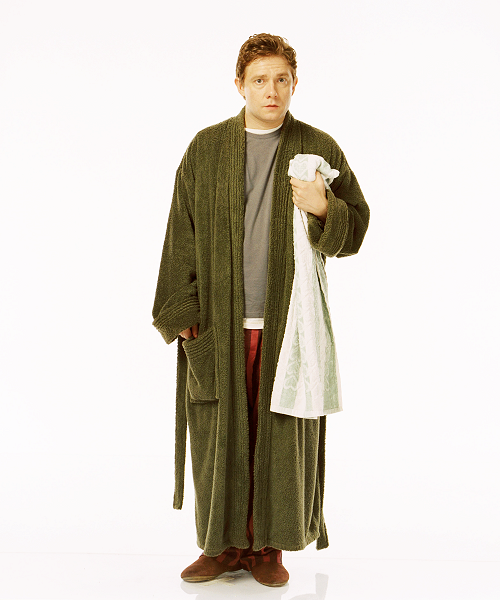Book
summary: our story begins with the scheduled demolition of protagonist, Arthur
Dent’s house. While lying in front of bulldozers, Arthur’s friend, Ford Prefect,
arrives with something critically important to explain to Arthur. After a few
drinks at a local bar, Ford explains that Earth is to be demolished by Vogons
in the process of creating a hyperspace bypass.
The two escape certain death by
hitching a ride on the Vogon demolition ship, where Ford explains that he is
from a different planet, and that his job is to explore the galaxy collecting
information for an electronic book, the Hitchhiker’s Guide to the Galax. On the ship they face certain death again,
once they are discovered. They are tortured by being subjected to Vogon poetry,
the third worst in the known universe, and later jettisoned into space. In
space they are, against all probability, picked up by the Heart of Gold, which
is fueled by the infinite improbability drive.
On board they find Zaphod
Beeblebrox-who stole the ship-Ford’s semi-cousin and president of the galaxy;
Trillian, a girl who Arthur had once known, fondly; and Marvin, a chronically
depressed robot. Zaphod is in search of Magrathea, an ancient planet of legend,
where luxury planets were once designed and manufactured. Ford Trillian and
Zaphod delve into a crack in the planets layer, but are soon kidnapped, while
Arthur explores the surface. Arthur finds, or is found by, a man named
Startibartfast, who takes him into the planet’s interior, demonstrating the
mind-boggling scope of the planet’s operations.
The man explains to Arthur that
Earth was commissioned by pan-galactic beings, designed as an organic computer
that would compute the question to the answer of life, the universe, and
everything. They were unsatisfied with Deep Thought’s answer “42”, and Earth’s
purpose was to clarify the question, but was destroyed by Vogons five minutes
before its completion. The pan-galactic beings, manifested as Trillian’s mice,
realize that Arthur is a last generation byproduct of the organic matrix, and
that the answer is imprinted on his brain. They offer no other choice,
approaching Arthur with the intent to perform lobotomy, but the group escapes.
Then the group is confronted by two members of the galactic police who mean to
arrest Zaphod for grand theft auto. While this is happening Marvin, the
chronically depressed robot, explains his view of the universe to the police mother-ship.
To evade Marvin’s terrible depressing rant, the robot commits suicide, which
destroys the life-support system of the police officers. After this, the group
decides to go for lunch to the Restaurant at the End of the Universe.


